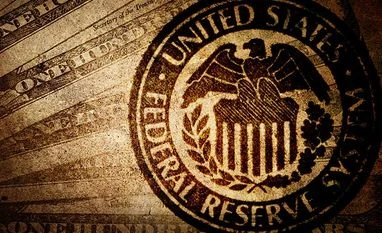And that was before Britain upset financial markets by voting to leave the European Union.
The June meeting, and the fallout from the so-called Brexit vote, continued what has become a familiar pattern: The Fed entered the year predicting stronger growth and a gradual return to higher interest rates. It has beat a slow retreat from both predictions as the data has disappointed its expectations.
Also Read
Financial markets are now betting heavily that the Fed will not raise rates again before 2017. The yield on the benchmark 10-year Treasury bond has fallen below 1.4 per cent, the lowest level in history.
Fed officials insisted in the weeks before the June meeting that they were thinking seriously about raising rates for the first time since December. The meeting account, released after a standard three-week delay, said the weak pace of reported job growth in May effectively ended that debate. "Almost all participants judged that the surprisingly weak May employment report increased their uncertainty about the outlook for the labour market," the account said.
The vote to do nothing at the June meeting was unanimous - a first for the Fed since January - but differences persisted over how long the Fed should wait. Some officials continued to argue for raising rates soon, while others saw little reason for urgency.
Those in favour of moving argued that unemployment and inflation were close to levels the Fed regarded as healthy, and waiting could cause the economy to overheat. In their view, the minutes said, "taking another step in removing monetary accommodation should not be delayed too long."
Stanley Fischer, the Fed's vice chairman, said last week on the business cable news network CNBC that there was still reason for optimism about the economic outlook. "First of all, the US economy since the very bad data we got in May on employment has done pretty well," he said. "Most of the incoming data looked good." Others, however, were inclined to leave rates near zero for some time. These officials, the account said, "underscored they would need to accumulate sufficient evidence to increase their confidence that economic growth was strong enough to withstand a possible downward shock to demand."
James Bullard, the president of the Federal Reserve Bank of St Louis, announced after the June meeting that he now expected that the Fed should keep rates near the current low level through 2018.
Rob Martin, an economist at Barclays, said the debate would be decided by job growth in the coming months. The government will release its June employment report on Friday. "If employment growth picks up this summer, members will become more optimistic over the outlook for activity," he wrote after the release of the meeting minutes.
"Likewise, if employment growth disappoints over the summer, even the most hawkish member will begin to revise its outlook lower and no member would push hard for a September rate hike."
Since the financial crisis, inflation has consistently failed to reach the 2 per cent annual pace the Fed regards as healthy. Inflation expectations have declined sharply. And, as inflation sags in other developed nations, some economists warn that central banks are not doing enough. But the Fed remains officially sanguine. The account said most officials expected faster inflation in coming years.
The global economy also remains a concern. The June minutes said that officials saw signs of improvement-but that was before the British vote. There is general agreement that Britain's exit from the European Union will drag on growth, but the magnitude remains unclear.
In the short term, that is another reason for the Fed to delay any rate increases.
"We are still evaluating it," Fischer said on Friday. "My guess is that it will be less important for the US than the countries directly involved-almost just logically so. We will wait and see."
©2016 The New York Times News Service
You’ve reached your limit of 10 free articles this month.
Subscribe now for unlimited access.
Already subscribed? Log in
Subscribe to read the full story →

Smart Quarterly
₹900
3 Months
₹300/Month
Smart Essential
₹2,700
1 Year
₹225/Month
Super Saver
₹3,900
2 Years
₹162/Month
Renews automatically, cancel anytime
Here’s what’s included in our digital subscription plans
Exclusive premium stories online
Over 30 premium stories daily, handpicked by our editors


Complimentary Access to The New York Times
News, Games, Cooking, Audio, Wirecutter & The Athletic
Business Standard Epaper
Digital replica of our daily newspaper — with options to read, save, and share


Curated Newsletters
Insights on markets, finance, politics, tech, and more delivered to your inbox
Market Analysis & Investment Insights
In-depth market analysis & insights with access to The Smart Investor


Archives
Repository of articles and publications dating back to 1997
Ad-free Reading
Uninterrupted reading experience with no advertisements


Seamless Access Across All Devices
Access Business Standard across devices — mobile, tablet, or PC, via web or app



)


